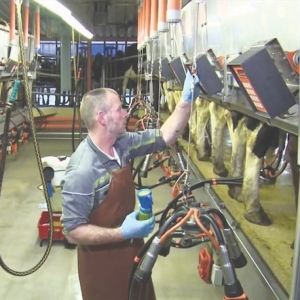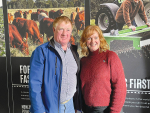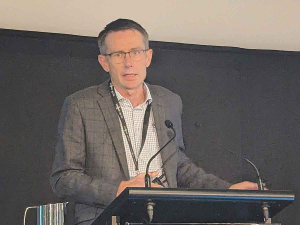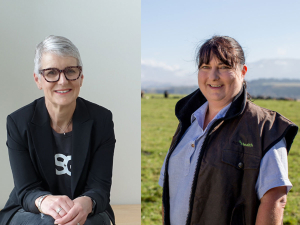Ireland aims to build a share farming dairy career pathway similar to New Zealand’s when 30 years of milk quotas ends in April.
“We would like to develop a career pathway for young trained individuals who choose a career in dairy farming,” Thomas Curran, farm structures specialist with national agricultural research body Teagasc told Dairy News.
“[Share farming] is a system that has the potential for these young people to build up business in a tax efficient manner while rewarding their technical efficiency and expertise. In the absence of milk quota shackles it will become possible for this to happen.
“We also have an ageing population of established dairy farmers who are looking to become involved in a collaborative arrangement such as dairy share farming, especially in situations where they do not have an identified successor to take over the farm.”
Initial attempts to establish a formal share farming system in Ireland in the 1970s didn’t take off because few farms had the scale to make share farming viable, says Curran. Then the European Union’s imposition of milk quota in 1984 effectively made dairy share farming illegal as non-quota holders, such as sharemilkers, were prohibited from supplying processors.
“In those early days you could not get milk quota unless you were born into a dairy farm or leased or purchased land with milk quota attached. It became a bidding war with only the well-off larger farmers in a position to secure additional milk quota.”
However, share farming templates for cropping, or “tillage” as the Irish call it, and drystock were developed in the 1990s with the cropping model in particular proving popular as a way to secure land longer-term.
Teagasc has now developed a dairy share farm template for use after April 1.
“We began work by basing the document on our own tillage document since the concept is exactly the same: two businesses independent of each other and operating on one farm,” says Curran.
“What we are striving to develop in Teagasc is a suite of collaborative arrangements that farmers can choose from to suit their own personal farming circumstances. Dairy share farming is the new addition to that.”
The dairy template was developed with a steering committee representing a wide range of stakeholders and the support of the Irish Farm Managers Association. It will be available on www.teagasc.ie from April 1.
Speaking at the launch of the template, Ireland’s agriculture minister Tom Hayes sang the praises of share farming.
“There are many benefits to share farming arrangements on dairy farms, not least that they afford an opportunity for young well educated farmers, particularly those who do not have access to land, to gain valuable employment and experience.
“They can also provide a viable option for dairy farmers who wish to step back a bit from the day to day physical work on the farm, but want to retain a strong interest in the management of the enterprise.
“Share farming is an obvious vehicle for addressing land access issues and for encouraging young people who might otherwise be constrained by land availability to bring their energy, enthusiasm and vitality to the dairy sector.”
Curran says as for any other collaborative business arrangement, a written agreement will be critical to the success of dairy share farming.
“The guideline document will ensure that the essential elements are covered in any agreement. The template ensures that the land, facilities and production rights are detailed…. The split in farm receipts and input costs is documented as well as the ownership of animals. Procedures for dealing with conflict and dissolution are outlined as well as other relevant items.”

















